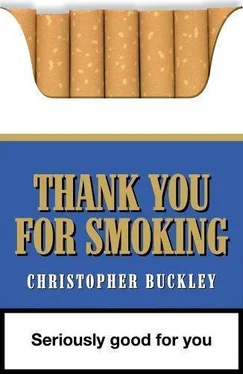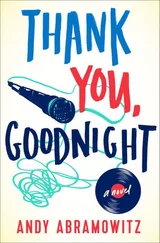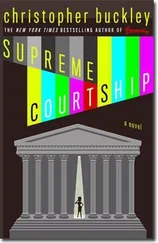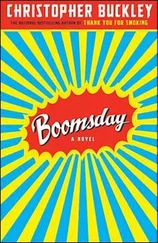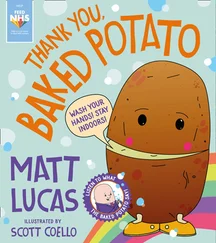"You realize you're next, don't you?" Nick said. "If he gets away with putting skulls and bones on cigarettes, how long do you think it's going to be before he's going to want to slap them on scotch, beer, and wine?"
"There's no room for any more warning labels," Polly said bitterly. "I'm surprised we don't have to say that you shouldn't swallow the bottle."
"We're all finished," Nick said morosely. "Despair is a mortal sin," Bobby Jay said.
"My entire product line is about to be moved from the cash register over to the "Household Poisons" shelf and the FBI thinks I covered myself with nicotine patches. I think frankly that I'm entitled to a little despair."
Polly put her hand on top of his. "Let's take it step by step."
"She's right," Bobby Jay said. "There's only one way to eat an elephant. One spoonful at a time."
"What is that supposed to be, redneck haiku? Can we please get real?"
Bobby Jay leaned in close. "We have friends inside the J. Edgar Hoover building. Lemme see what I can find out."
"About an ongoing investigation? Good luck."
"You might be surprised. A whole lotta bonding goes on at a firing range. Never know what you might pick up with the empties."
"Well," Nick sighed, "tell them to go arrest some more Islamic Fundamentalists."
"All right, we're making progress," Polly said. "Bobby Jay's taking care of your FBI problem. So now you only have to figure out what to do with Finisterre. He's got to have a weak spot. Everyone does."
"What am I going to do? Attack him on MacNeil-Lehrer for renting Wet Coeds?"
"Heyy," Polly said, taking him by the shoulder, "where's the old Neo-Puritan dragon slayer? Where's the guy I used to know who could stand up in a crowded theater and shout, 'There's no link between smoking and disease'?"
Nick looked at her, and was seized with the old swelling for Polly. But this was no time to think about that, as he was semi-involved with Heather and certainly involved with Jeannette. Pity. He and Polly would be. well, anyway, she was right. You want an easy job? Go flack for the Red Cross.
The waitress arrived to tell them about the dessert specials. She was new; Bert hadn't briefed her that table six was never, ever, to be told about the day's specials.
"We have apple pie," she said, "and it's served a la mode, with ice cream, or with Vermont cheddar cheese, which is real good."
"So," Polly said, once the waitress had been shooed away, "so what's the deal with Fiona Fontaine's hair? Nick? Nick?"
It felt like he was in an isolation chamber, being observed by scientists on closed-circuit TV. He didn't even get to watch his interrogator and the other guest on a monitor. All he'd get was audio — and that lens, staring at him unwinkingly like a great, glassy, fish-eyed, man-eating cyclops.
Koppel preferred it this way — himself alone in the studio, his interviewees off in others. TV news's equivalent of the one-way mirror in police stations. It gave him the advantage of not having to cope with his subjects' corporeality. This way he would not be distracted by their nervous body language and take pity on them. Only special guests got to sit next to him, such as the disgraced former presidential candidate who, months later, selected Nightline to try to explain why — on earth — he had blown his kingdom for a blow job.
"Thirty seconds," Nick heard in his earpiece. He was nervous. He'd been on Nightline before but the stakes had never been this high. He could feel himself being watched, could sense on the other side of the lens the Captain, BR, Polly, Jeannette — watching in the greenroom, a few doors away — Heather, Lorne Lutch, Joey, his proud mother — my son, the tobacco spokesman — Jack Bein and maybe even Jeff Megall, who would be hoping that Nick would fail miserably, for the Lese majeste of having declined his meal of transparent raw fish.
Be cool, he told himself. In a hot medium, coolness is all, limpidity is better, and not picking your nose is key. He did his breathing exercise, a ten-second breath let out in twelve. He closed his eyes and tried to empty his mind. Somewhere he had read that it takes Japanese monks twenty years of silence, green tea, and brown rice to empty
theirs. Tonight, however, he wasn't looking for enlightenment, just a reduced pulse rate.
Suddenly through the earpiece he heard — violent coughing. Was it the engineer?
Oh no, for up came the familiar voice-over: "Cigarettes. some estimates are that as many as half a million Americans will die this year from smoking."
Swell, Nick thought, we're off to a fine start: an image of a terminal cancer patient spitting up burst alveoli.
"Yet despite," Koppel continued, "the Federal Cigarette Labeling and Advertising Act of 1965 requiring stiff warning labels on cigarettes, people continue to smoke. Now, a U.S. senator. "
Nick did another breathing exercise.
"Good evening. From Washington, I'm Ted Koppel and this… is Nightline."
That trademark pause reminded Nick of the beat that Edward R. Murrow used to insert in his famous wartime radio dispatches from London during the blitz. "This… is London." Dear old chain-smoking old Edward R. Murrow. Dear old, dead old Edward R. Murrow.
". later, we'll be joined by Vermont Senator Ortolan K. Finisterre, author of the Senate bill, and by Nick Naylor, chief spokesman for the tobacco lobby. But first, this report from correspondent Chris Wallace. "
Wallace's wretchedly thorough report brought up the Lancet study predicting 250 million deaths worldwide from smoking by the end of the century — one in every five people in the industrialized nations. Bitch of a study, that one. Nick made a mental note to try, anyway, to cast aspersions on the world's most respected medical journal.
"Let me start with you, Senator. Cigarettes already carry explicit warnings. Why do you need this additional label?"
"Well, Ted, as you pointed out in your excellent introduction…"
Brown-nose. But — a miscalculation! Koppel was too proud to be blatantly sucked up to, especially by a politician.
"But surely the warning is already dramatic," he riposted. Nick cheered him on. "It states the risks. 'Lung cancer,' 'emphysema,' 'heart disease,' 'fetal asphyxiation.' Why do we need a skull and bones?"
"Unfortunately, Ted, many people in America can't read, or can't read English, so this measure is very specifically intended for their benefit. I think we have a responsibility to those people."
"All right. Mr. Naylor, and I should point out that however people feel about smoking, you've certainly been a front-line warrior for your industry, by virtue of having been recently kidnapped and nearly killed by an apparently radical anti-smoking group—"
"Apparent to me," Nick said.
"Perhaps I should start by asking you if you believe that cigarettes are harmful." A softball.
"Well, Ted, I take what I'd call the scientific position, namely that a lot more research is needed before we come to any responsible conclusion on the matter."
Good, excellent. In a single sentence he had allied himself with Responsible Science.
"Even though there have been to date more than sixty thousand studies showing a link between smoking and cancer alone?"
Nick gave a world-weary nod of the head to indicate that he was not surprised that this raggedy-ass canard had been dragged out. "I think I recognize that figure you just cited, Ted. If I'm not mistaken, it comes from former Surgeon General Koop's book, the one he got a rather substantial advance for."
"I'm not sure what you're suggesting."
"Just that Mr. Koop, like many other political figures, is not without his own agenda."
Читать дальше
